The Wadi Dawkah Estate
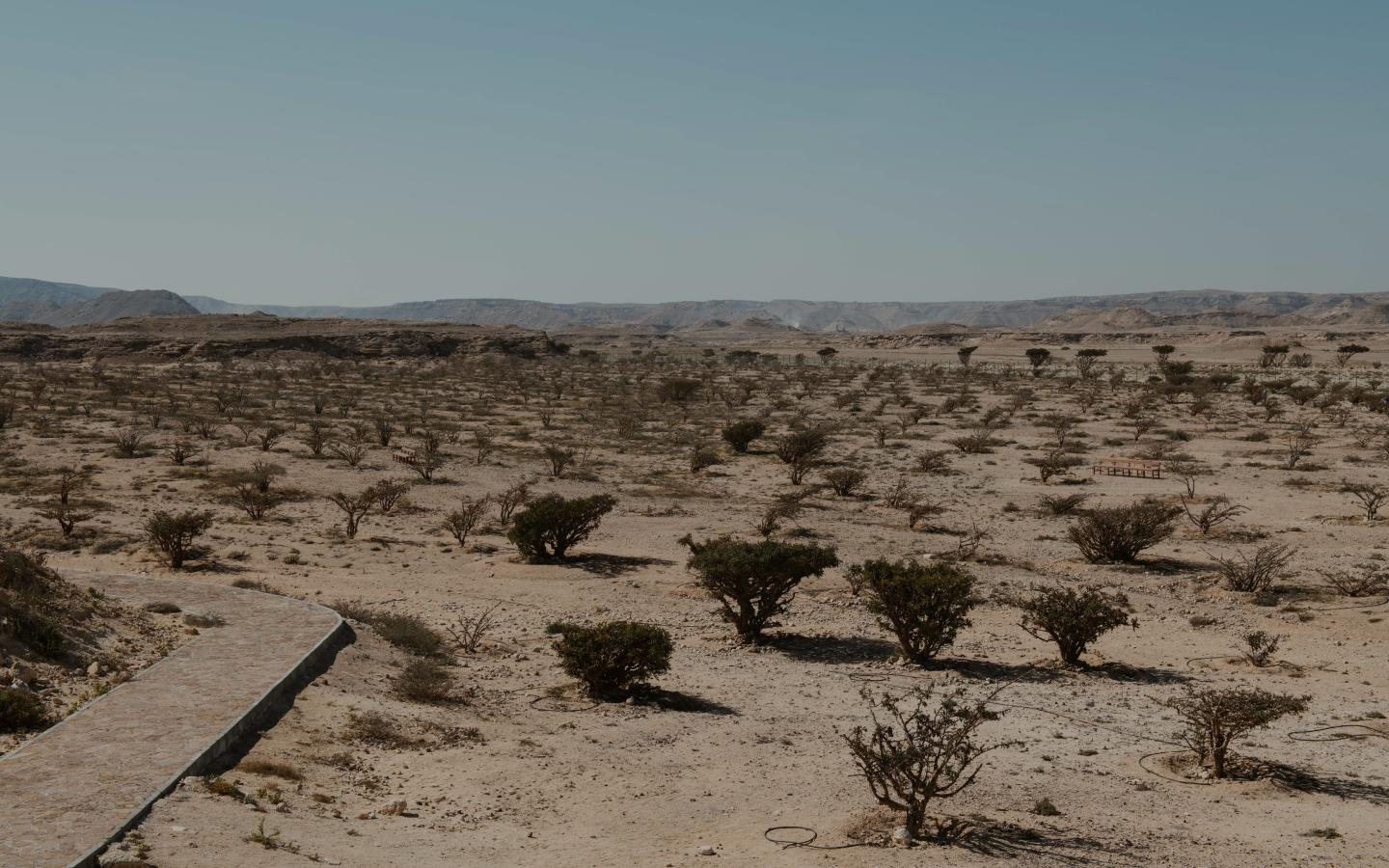
THE WADI DAWKAH ESTATE
LYING AT THE HEART OF THE LAND OF FRANKINCENSE IS WADI DAWKAH, A UNESCO WORLD HERITAGE SITE OF OUTSTANDING SIGNIFICANCE WHICH PROVIDES REFUGE TO OVER 4,000 FRANKINCENSE TREES.
Spread across 3,500 acres in Oman’s Dhofar region, Wadi Dawkah is home to the world’s largest protected Boswellia sacra forest, a place where thousands of frankincense trees have flourished over the centuries. This is where the most sustainable, ethical and transparent source of frankincense begins its thousand-year-old journey into the world.
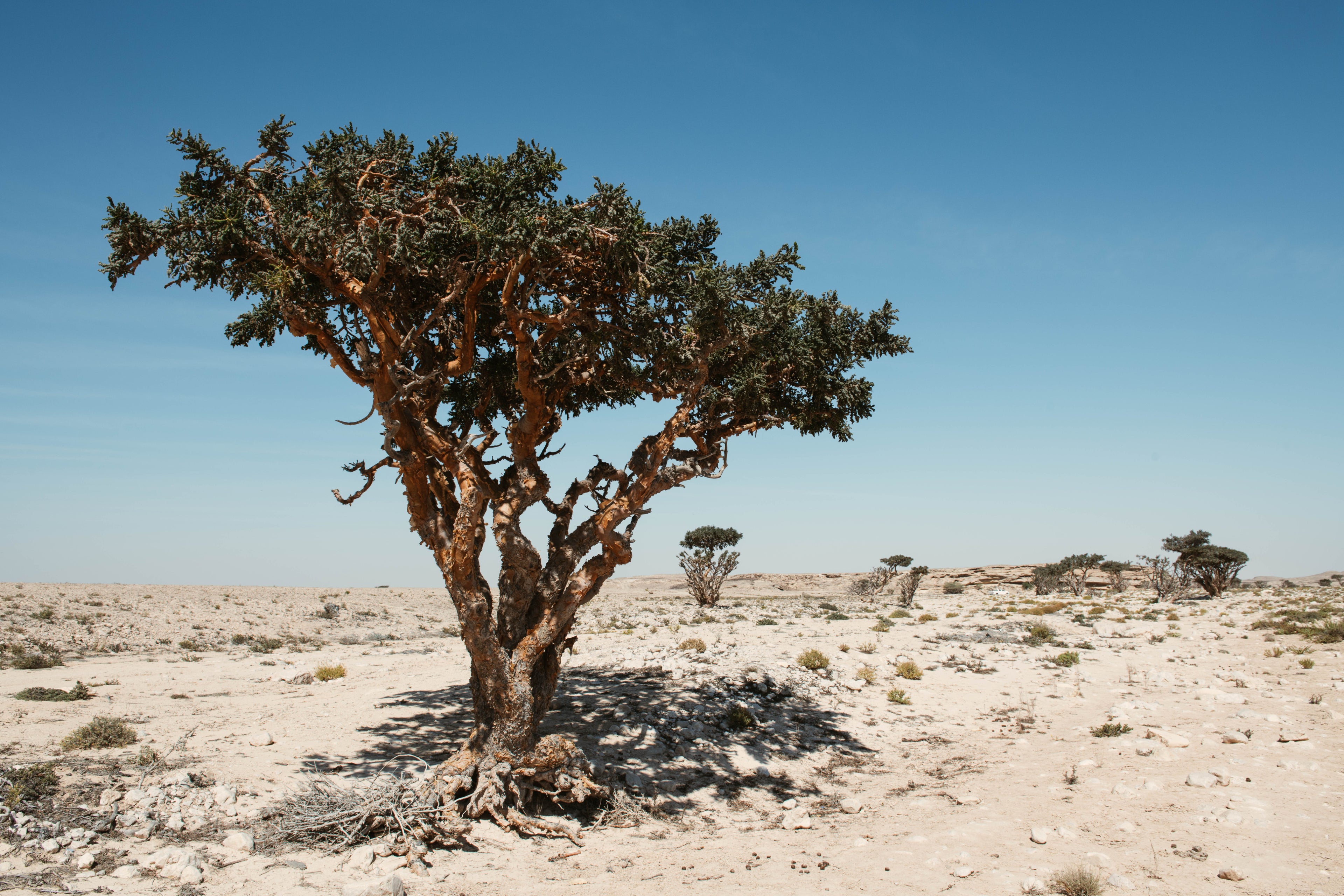
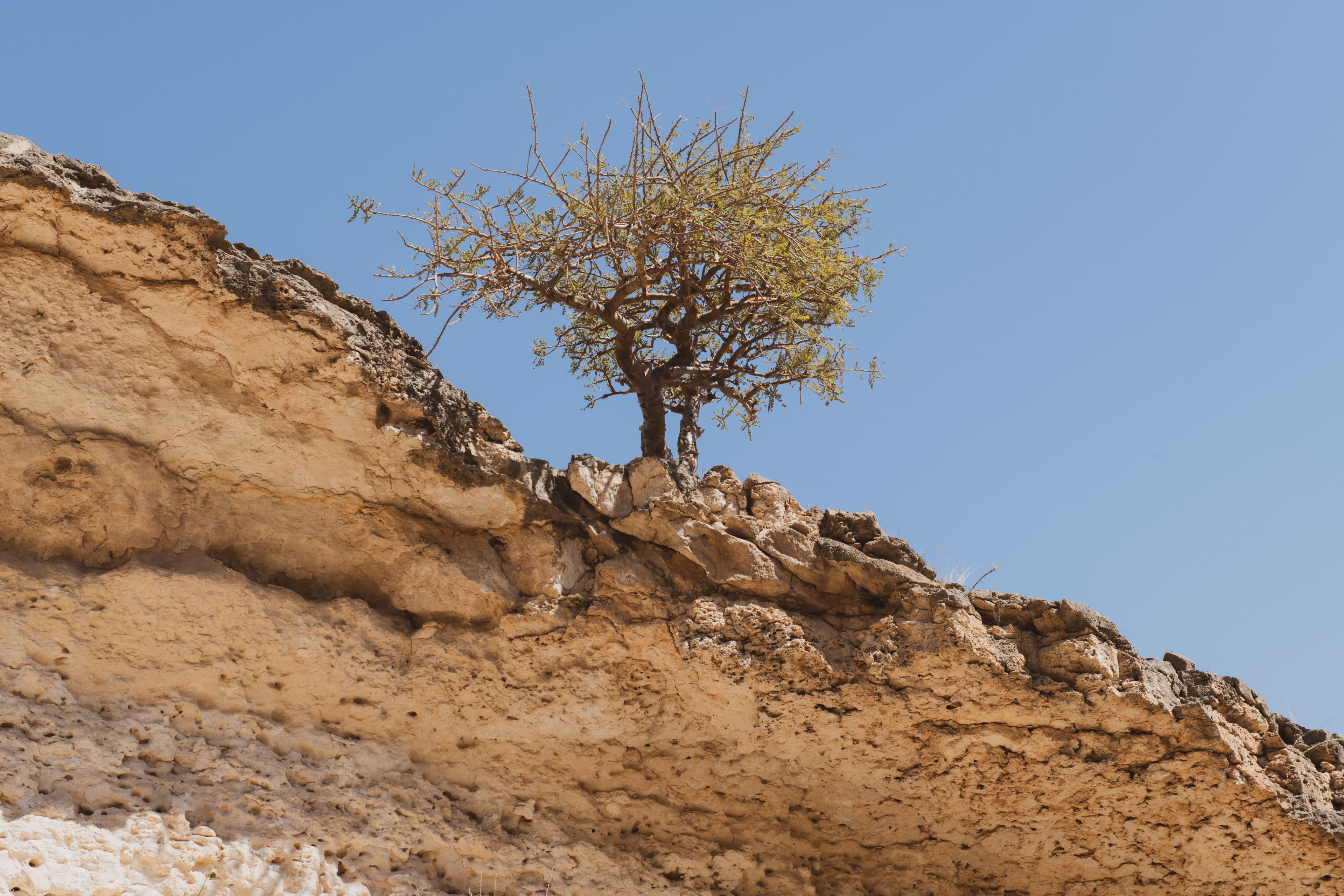
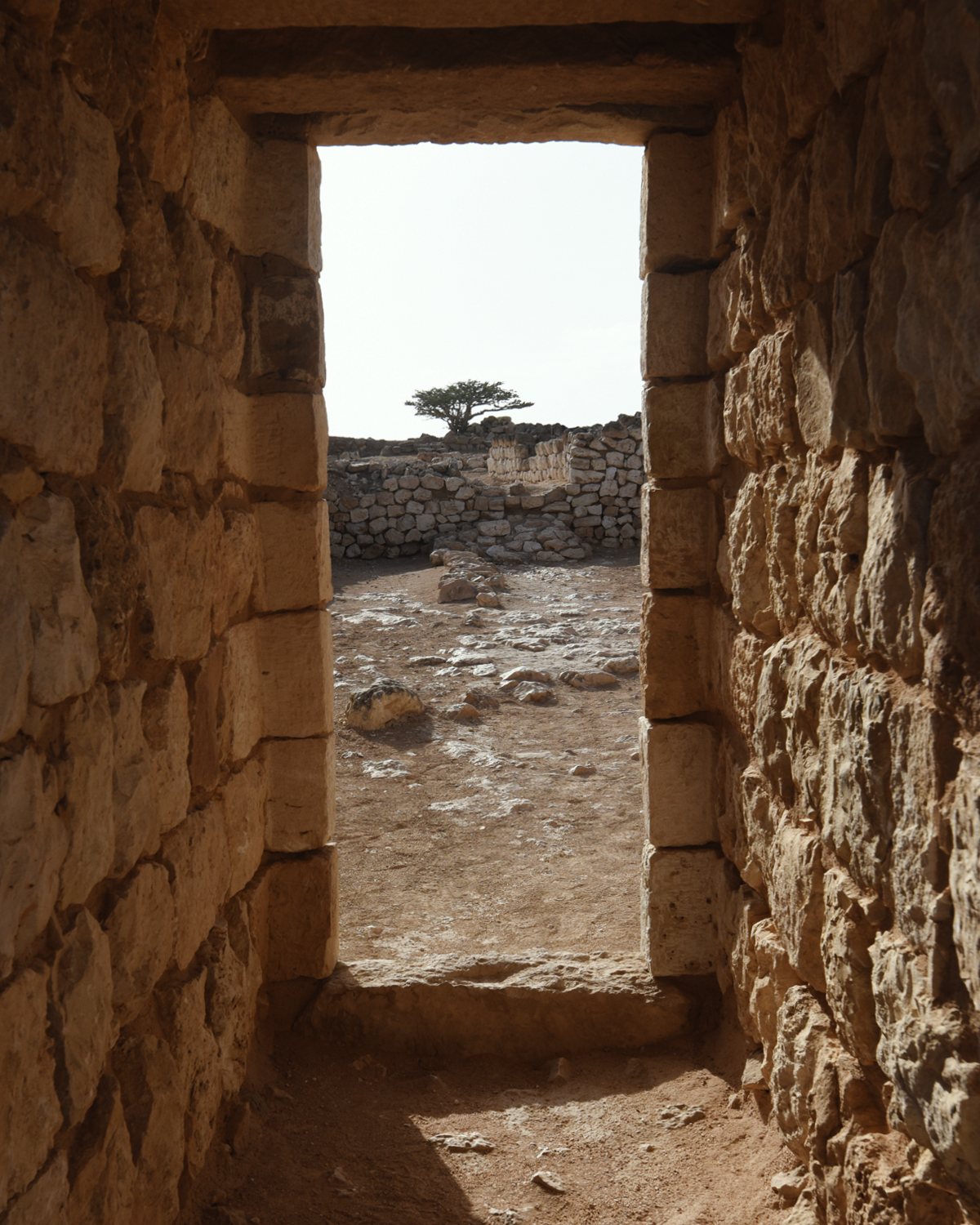
The land of frankincense
The Land of Frankincense is a cultural heritage site inscribed on the UNESCO World Heritage List in 2000, encompassing four historic locations along the ancient Incense Route.
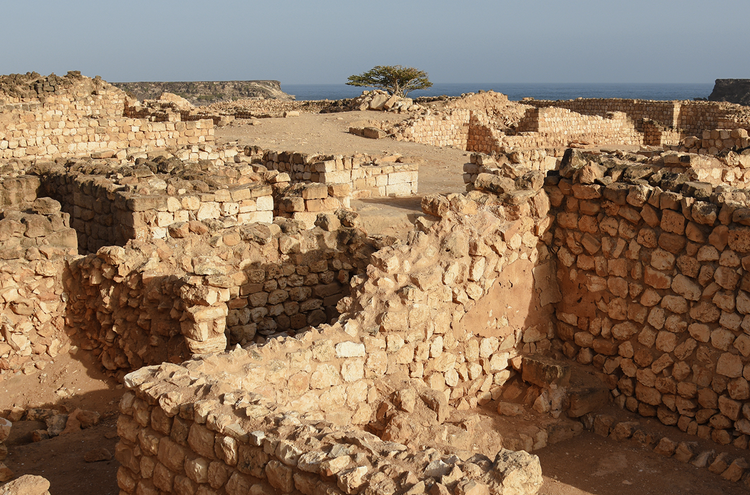
FOUR EXTRAORDINARY LOCATIONS
-

WADI DAWKAH
At the heart of Dhofar’s desert valley in southern Oman is Wadi Dawkah, an exceptional site that testifies the importance of frankincense for Omani heritage and culture over the centuries. Today, the site serves as a pilot project for the Omani frankincense industry.
-

SHISR
The site of Shisr (ancient Ubar), located in the desert 180 km north of Salalah, was an important caravan outpost, but also an agricultural oasis and a location for water supply along the desert land routes.
-

Al-Baleed
Located in the municipality of Salalah, Al Baleed was the main port for the frankincense trade in medieval times. Its intense commercial activity between the 8th and the 16th centuries is testified by the richness of the archaeological site. The Al-Baleed Archaeological Park also houses the Land of Frankincense Museum.
-

Khor rori
On the coast, about 40 km east of Salalah lies the site of Khor Rori, the ancient Sumhuram. The majestic port lying at the mouth of Wadi Darbat was active from the 4th century BC to the 5th century AD and constituted, during this period, the main hub of the frankincense trade.
THE ANCIENT FRANKINCENSE ROUTE
Oman enjoyed a central position on the Incense Route, a vast network that stretched from the Arabian Peninsula to Mesopotamia, Egypt and Europe, on one side, and India and China on the other.
AMOUAGE, THE OMANI HIGH PERFUMERY HOUSE, IS THE GUARDIAN OF ONE OF THE SULTANATE’S MOST PRESTIGIOUS SITES: WADI DAWKAH.
Founded in the Sultanate of Oman in 1983 to be “The Gift of Kings”, the House has redefined the Arabian art of perfumery, bringing innovative modernity and true artistry to all its creations. When it was founded, His Late Majesty Sultan Qaboos bin Said offered Amouage creations to his most prestigious guests; the scents served as the most effective ambassadors of Omani taste. Amouage has turned Wadi Dawkah into a pilot project for the Omani frankincense industry and aims to create the world’s centre of gravity for this precious ingredient.
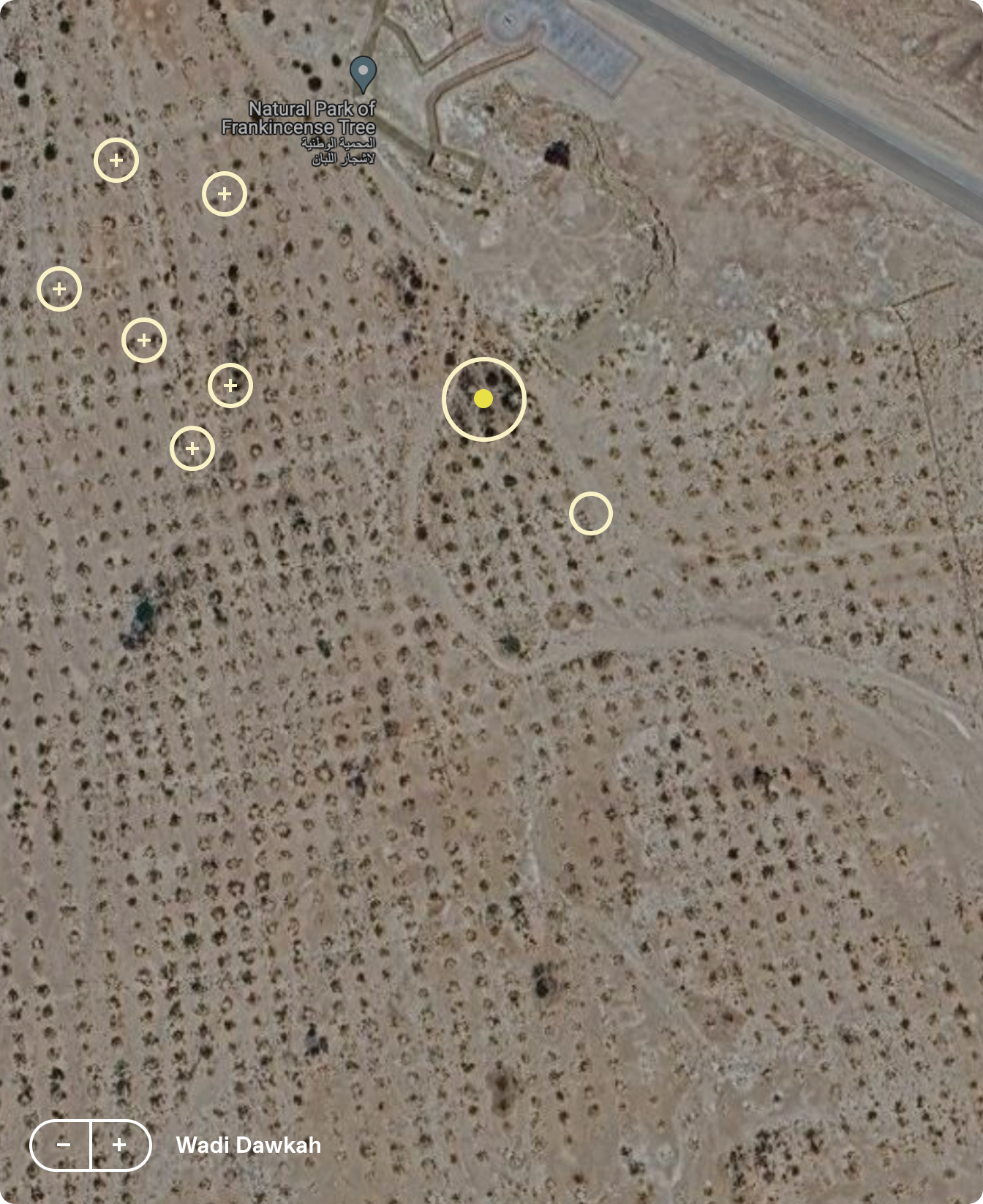
Planting trees and beyond
Wadi Dawkah will become the source of the world’s most sustainable, responsible, and ethical frankincense. Our objective is to transform Wadi Dawkah in a reference site with best-in-class approaches for ethical ingredient sourcing.
Understanding local biodiversity
As a UNESCO World Heritage Site, we ensure the site’s conservation and biodiversity by safeguarding it from risks, such as excessive camel grazing and overcultivation.
Seeking transparency
Each tree has been geolocated, photographed, measured, and QR-coded. Every time that trees are harvested, the data is recorded. Each tree has its own individual digital identity, allowing our specialists to better understand this unique ecosystem.
Empowering the local community
The local community is integral to protecting Wadi Dawkah. Our ever-expanding Omani team is trained on sustainable and responsible harvesting techniques.
Support us and get involved
SPONSOR A TREE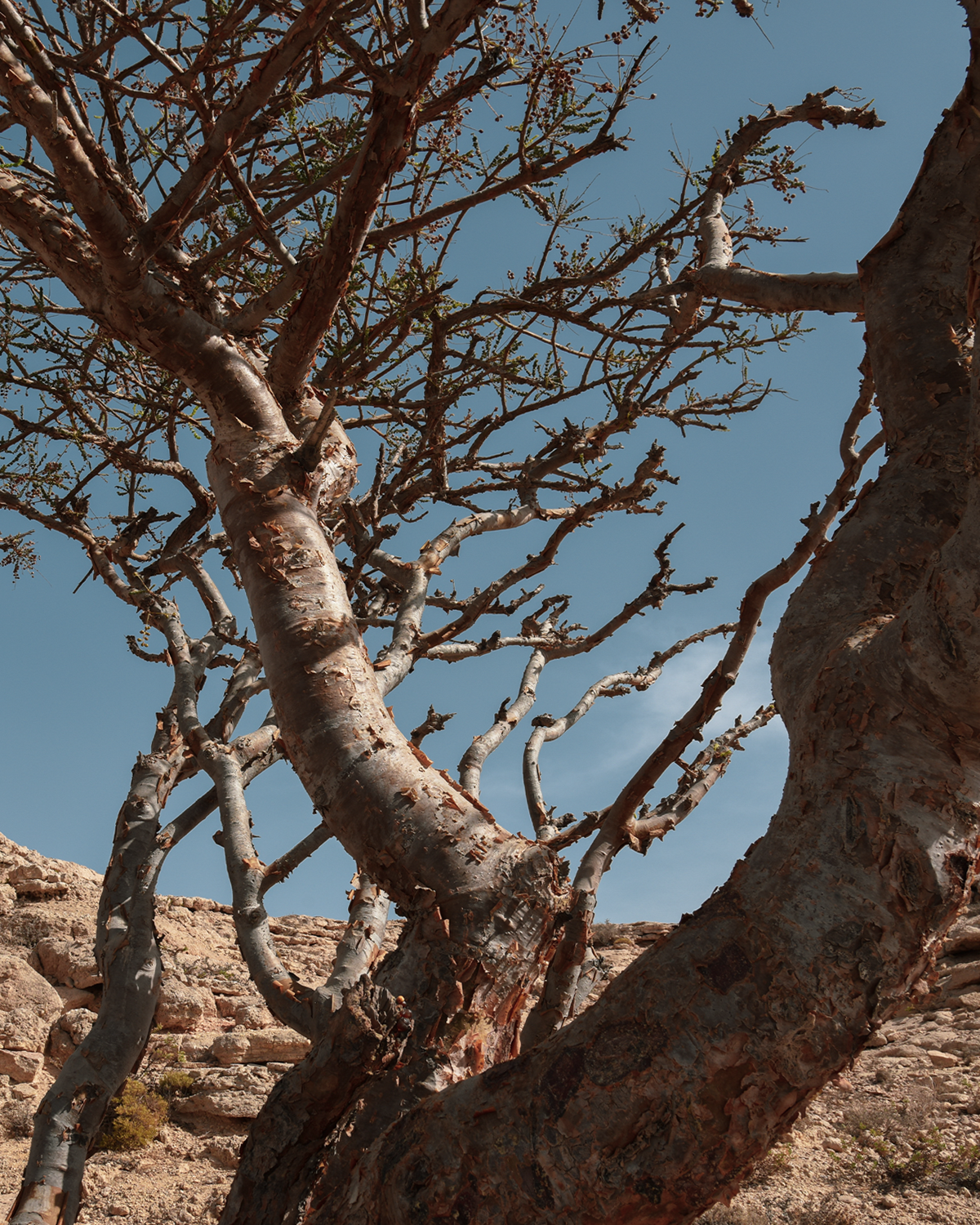
the tree
Boswellia sacra is the botanical name of the frankincense tree, an iconic knotty-branched deciduous tree whose aromatic resin was once traded at the same price as gold. Boswellia sacra is indigenous to Southern Arabia and the Horn of Africa.
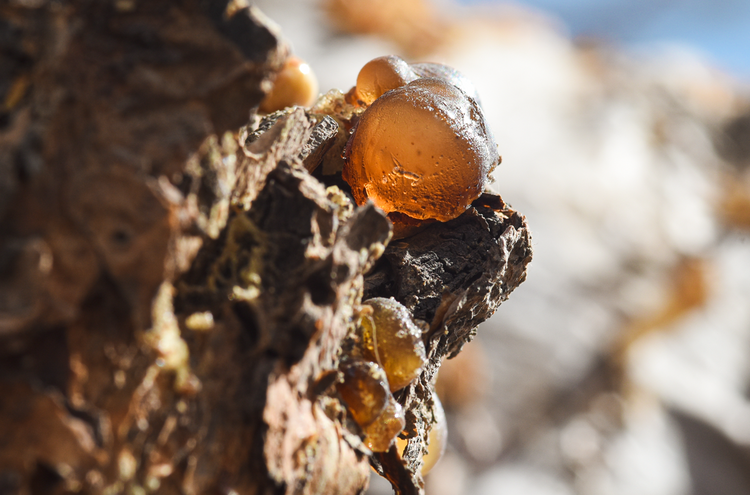
-
5,000
Trees growing
-
3,500
Acres classified as a UNESCO World Heritage Site
-
1,000
Trees currently being harvested








